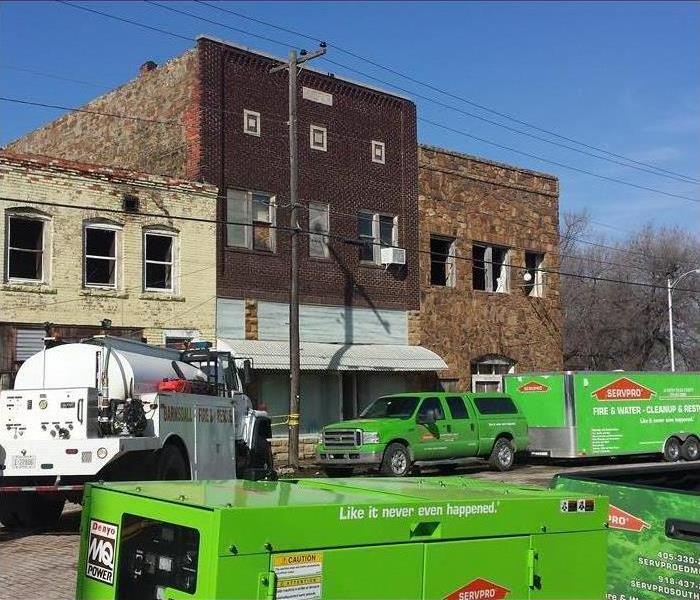How To Compensate for Lost Revenue
1/8/2019 (Permalink)
A fire can prevent a business from operating for days or weeks. This interruption can be ruinous without interruption coverage. Business owners should consider obtaining an interruption insurance rider in addition to a commercial property insurance policy. Find out how business interruption coverage can offset revenue loss due to fire damage at a commercial structure in Edmond, OK.
Cover Continued Expenses
An interruption policy can cover expenses that continue while a business is closed for damage mitigation and restoration. These expenses may include:
- Rent
- Payroll
- Taxes
- Utilities
Factor in these costs when determining the amount of interruption insurance coverage. It is also important to calculate the average daily income of a business. These figures and the overall risk level will determine policy premiums.
Cover Lost Business
The sooner restoration starts, the sooner a business will be able to reopen. Interruption coverage can make up for revenue loss during this process. If a business can operate out of a portion of the damaged structure or a temporary location, it may not be necessary to rely on an interruption policy.
Cover Temporary Relocation
Interruption coverage may take anywhere from 48 to 72 hours to start. Business owners should determine whether a primary commercial insurance policy or this rider will cover the costs of temporary relocation. A claim that only relies on this coverage for the purposes of relocation is likely to be much lower than a claim for the full cleanup and restoration period.
According to the National Fire Protection Program, fires cost over $300 billion every year. Business owners can limit losses due to disasters with interruption insurance. It is a good idea to develop a business continuity plan and to try to lower the length and overall cost of business interruption coverage. This can be achieved by hiring fire restoration professionals and finding another way to operate during this process.



 24/7 Emergency Service
24/7 Emergency Service
